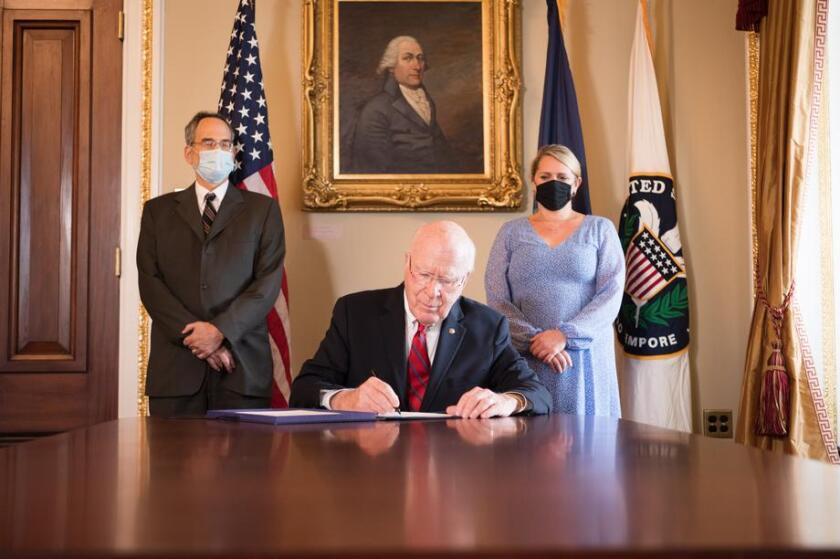US senators Patrick Leahy, John Cornyn and Thom Tillis introduced a new bill related to the Patent Trial and Appeal Board today, June 16.
The PTAB Reform Act, a 27-page document, will codify a transparent director review process, set out provisions to stop patent challengers from filing simultaneous or repeated inter partes reviews (IPR), and do away with Fintiv, among other things, if enacted.
On the matter of director review, included to satisfy the US Supreme Court’s ruling in Arthrex, the bill sets out that the USPTO director must make written decisions available to the public and set forth the reasons for review, modification, or setting aside of a PTAB edict.
The bill states that the USPTO can no longer use parallel litigation as the basis to deny an IPR.
The act also establishes new sanctions for those who file PTAB proceedings as part of an “abuse of process” including those petitioners who deliberately offer to delay or lose an IPR in exchange for consideration.
The sanctions include shifting costs, expert witness fees, or attorney fees, referring counsel to the Office of Enrollment and Discipline and, most strikingly, a bar preventing parties from filing post grant proceedings for one year.
An industry source at a pharma company, who reviewed the bill before it was released, said this wording may cause problems for challengers who discuss settlements, depending on how it’s applied.
“In almost every IPR we start, we offer settlement,” he explains. “Often, the patent owner will turn around and say ‘no way’ because they think our IPR has zero value, and then we subsequently prevail. But will the other side think we acted in bad faith and move for sanctions?”
Speaking on the bill’s release, Leahy said: “I’m proud to continue the work of ensuring that our patent system reinforces high-quality patents while protecting start-ups, small businesses, and American manufacturers from patents that do not represent true innovation.
“I have enjoyed working with senators Cornyn and Tillis to achieve that balance. This bill represents the Senate at its best – different sides coming together to achieve a thoughtful compromise that is greater than what either side could achieve alone.”
The road to PTAB Reform
The legislators revealed earlier this year that they intended to release a new PTAB bill that they hoped would attract broad bipartisan support in Congress.
Leahy, who’s set to retire from the Senate in November, introduced his own PTAB legislation – the Restoring the America Invents Act (RAIA) – along with Cornyn in September 2021, shortly after Managing IP broke the story of the bill’s imminent drop.
The RAIA failed to get enough support within the US legislature, however, spurring Leahy to turn to his Republican counterpart Tillis in the Senate Judiciary Intellectual Property Subcommittee. Leahy and Tillis are the chair and ranking member of said committee respectively.
Now that the senators have dropped their new bill, House representative Darrell Issa – the ranking member for the House Subcommittee on Courts, Intellectual Property and the Internet – will decide whether to introduce a companion piece of legislation in the House.
The new bill was reviewed and commented on by several stakeholder groups, including Pharmaceutical Research and Manufacturers of America (PhRMA), the Biotechnology Innovation Organization (BIO) and the Alliance of Automobile Manufacturers.
Leahy’s staff had asked these organisations not to share any drafts given to them ahead of the final bill’s release.











